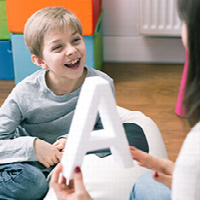WHAT IS YOUR PARENTING STYLE?
Most people who endured a bad childhood and have not taken a painful honest look within often repeat old bad parenting patterns and become a negative statistic. These behaviors become automatic, unconscious and without thought. Psychotherapy and high levels of motivation are required in order to change these generational patterns. On the other hand, there are a smaller percentage of people who suffered a very bad childhood and are determined to become a better parent. In fact, I have personally seen many of these folks succeed. I have seen children of narcissistic, schizophrenic, bipolar, and even sociopathic personalities turn things around and become competent, effective, and loving parents. Change is possible. Much has been speculated and written about what is required in order to make change. One thing I know for sure. Motivation and determination are prerequisites, and pain is usually the greatest motivator for change.
In most couples, two different parenting styles exist. Each partner must have respect and trust that their spouse will act in the best interests of the child. Also, there needs to be open pathways of communication between the two parents. If they are able to tolerate listening and validating the other person's perspective without putdowns, criticism, and judgment most things can be worked out. There needs to be two willing partners who are open and flexible in order to successful parents.
It is never good to have a "good" cop and "bad" cop parenting style with your spouse. This split fosters kids pitting Mom against Dad. Often, marital stress emerges and things go South. The goal is for each parent to balance love/nurture with setting/holding boundaries. Children need both from each parent. When one parent is harsh and the other is loosey-goosey, that is when the most serious psychological and behavioral problems occur.
Intermittent reinforcers are the most difficult to extinguish. What this means in plain English is that if you want to get rid of a specific behavior - be consistent. If your child cries, begs, and tantrums after you have said no more cookies and on the fifth time she screams you submit and give her the extra cookie you have inadvertently reinforced her tantrum. She doesn't know how long or hard she has to cry next time before you give in to her demands.
Authoritarian:
Authoritarian Parenting style resembles a dictator. Rules, regulations, consequences, and punishments are in place and rigidly enforced.
I always say, "A rule can be a good thing. It allows you to know what to expect. But, rigidity is unhealthy and can destroy relationships.
Most kids rebel against this style. They begin with failing grades and often oppose the rigidity by breaking rules, using drugs, ditching school, lying, and stealing.
Authoritative:
Authoritative Parenting is strict but less rigid than the Authoritarian. These parents have a stern, firm style but are able to tolerate another person's point of view. There is approachability. This person can be reasoned with.
This parent has the ability to hold things together. He is great in managing a crisis. This parent is dependable. You can predict the response you will get from him.
Most kids hate to be "told" what to do. The Authoritative Parent tends to bark orders and commands. Many kids tune out/ignore or defy this type of parent.
Permissive/Indulgent:
The Permissive/Indulgent Parent is the one I refer to as the "Spaghetti Parent". He or she has no backbone and cannot say no. This parent is invested in having their child always like them. This parent has a high propensity for caving in when his child protests, whines, begs, bargains, or cries. She has self-doubt and waffles back and forth on decision making.
Most kids sing the praises of their Permissive Parent. Kids think a yes answer means that parent loves them. Kids of Permissive Parents fight less with that parents because the kid knows he will always get what he wants.
Children of Permissive Parents are surprisingly less secure. They are not given the necessary boundaries and limits to build internal confidence and security. The children also grow up with less internal structure and organization.
Disengaged:
The Disengaged Parent is emotionally detached from their child. She is either narcissistic and overly involved in her charity work or beauty treatments, or this parent did not have a healthy attachment to her mother, so she has this missing chip in her computer makeup. In other words, if you had a detached parent you are likely to pull away and disconnect from your child.
Children of Disengaged Parents often grow up faster and become more self-reliant. Their children learn very young that attention and praise are acquired perks. These kids grow up faster because they discover that anything they want they must hard for on their own.
All of the latest research indicates that brain development and learning come from one-on-one attachment between infant and Mommy. A warmly attached parent who responds warmly and consistently to baby's needs raises a child confident, secure, and trusting child.
There are many different styles of parenting. In my book, The Self-Aware Parent, I wrote chapters on The Helicopter Parent, The Parent with Doubt, It's About Your Child, Not You, and The Win-Win Parent.
Here are Dr. Fran's Top Tips For Knowing Yourself As A Parent:
- Understand how and in what ways you are similar to your parents.
- Examine yourself so as not to automatically repeat mistakes your parents made.
- Be aware of your feelings, moment to moment.
- Slow down your reactions. Reflect before speaking or taking action.
- Speed up your internal thinking process. First think, "How do I feel?" Then think, "How is my child feeling?"
- Expand the scope of options for how you can deal with your child.
- Self-evaluate so that you can make good, educated choices about how to raise happy, emotionally thriving children with good self-esteem.
- Self-awareness is comforting and leads to calm parenting.
Author:
Dr. Fran Walfish, Psy.D., M.F.C.C., Beverly Hills family and relationship psychotherapist, author, The Self-Aware Parent, and co-star on Sex Box, WE tv.
9615 Brighton Way Suite 414
Beverly Hills, CA 90210
Phone: 310-289-3221
Web: www.DrFranWalfish.com












